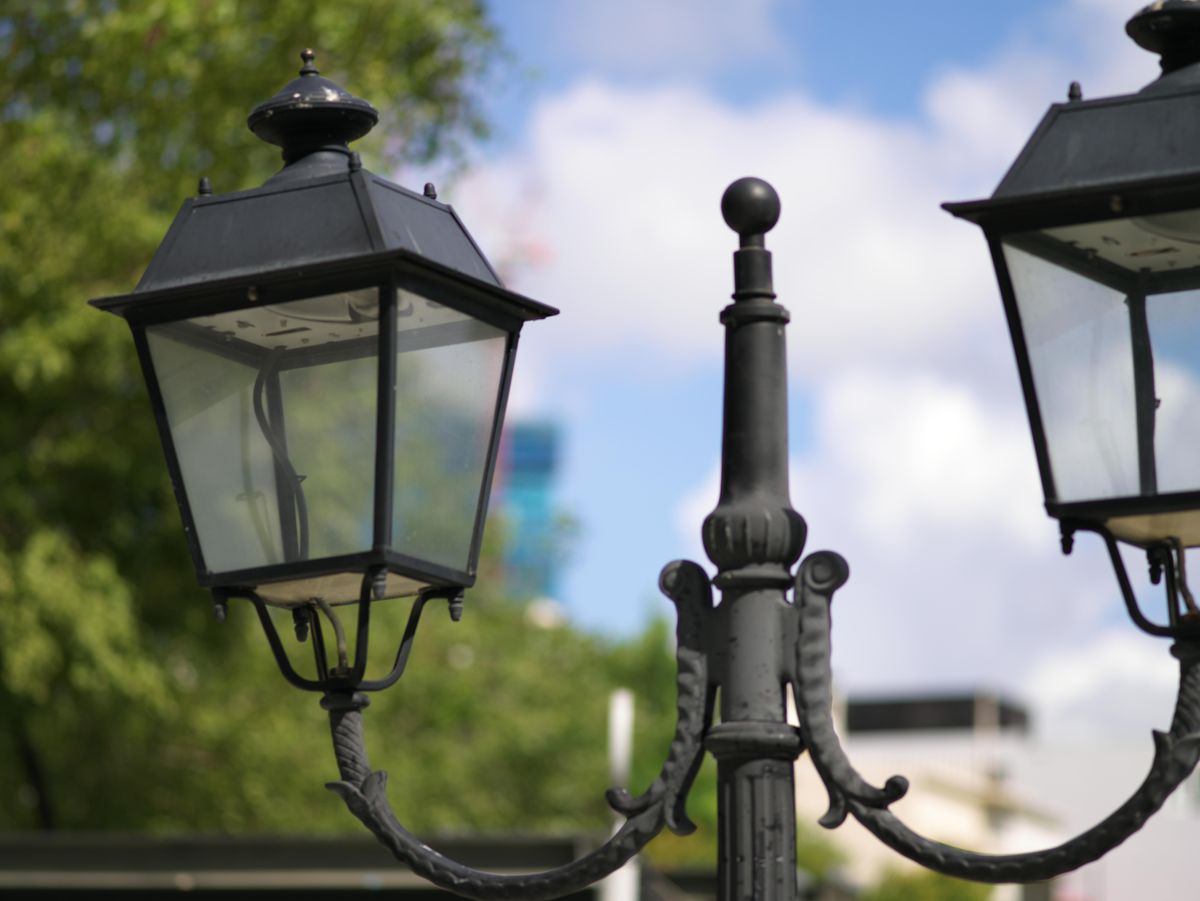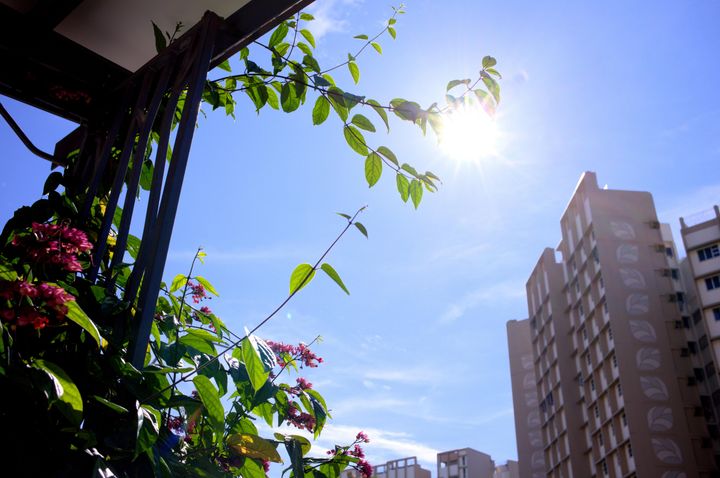QT 26/10/2025 Sun. Joel 1 Getting ready for the day of the Lord. 为耶和华的日子预备

QT 26/10/2025 Sun. Joel 1 Getting ready for the day of the Lord.
READ http://www.esv.org/Joel1
The “day of the Lord” is the dominant theme here. It’s relevance impacts Israel (1:15, 2:1–2) and the world (3:2–3). However, for the repentant, the “day” not only entails judgment but also restoration (2:12–14).
Getting ready for this day includes embracing the Lord’s covenant faithfulness and coming under His rule and protection (2:23–26; 3:1). This is especially true for believers of today, in whom the Holy Spirit dwells (2:27; 3:17, 21), as evidenced in Acts 2:17–21. During the period after the Southern Kingdom’s exile (probably after 586 B.C.), Joel the prophet called on God's people towards repentance in the light of devastating judgment.
🌾 Verse Focus :
“Put on sackcloth and lament, O priests;
wail, O ministers of the altar.
Go in, pass the night in sackcloth,
O ministers of my God!
Because grain offering and drink offering
are withheld from the house of your God.”
(Joel 1:13, ESV)
🧭 Context:
Joel opens his prophecy with a national crisis: a locust plague unlike anything Israel has ever seen. Crops are ruined, the land is desolate, and joy has withered away. But this is more than a natural disaster—it’s a divine wake-up call.
God is speaking through devastation, calling His people to return to Him with brokenness and sincerity. The outward famine reflects an inward spiritual drought.
🔥 Reflection:
In Joel 1, God is doing what He still does today—interrupting routine with reality to call His people back to Himself.
Israel had grown spiritually apathetic, and God allowed devastation not to destroy them, but to awaken them. Sometimes, God removes our comforts to reveal our condition. The locusts stripped the land bare, but they also stripped away false security.
Is it possible that what we call loss may actually be grace?
Have we allowed abundance to lull us into forgetfulness?
Has our worship become habitual instead of heartfelt?
In verse 13, God calls the priests—the spiritual leaders—to be the first to repent. Revival always begins with God's people. The outward signs of mourning—sackcloth, fasting, and lament—were meant to reflect an inward return to the heart of God.
🙏 Gospel Connection:
Joel 1 reveals a pattern we see throughout Scripture—judgment leads to mercy, and repentance opens the door to restoration.
Though this chapter doesn’t yet announce redemption, the entire message of Joel points to a coming Day of the Lord and ultimately to Jesus, who bore judgment on our behalf. The devastation we deserve was poured out on Him so that we could be restored.
When God calls us to repentance, it's not rejection—it's an invitation to healing.
🛐 Prayer:
Lord, strip away anything that keeps us from You.
Let us not be numb to Your voice or blind to our need.
Teach us to lament sin, to grieve what grieves You,
and to return to You with all our hearts.
Thank You that through Jesus, judgment has passed over us.
Revive us again, O Lord. In Jesus’ name, Amen.
🧠 Questions for Personal Reflection:
(1) What “locusts” (losses or disruptions) might God be using to get your attention?
(2) Are you more focused on rebuilding what you lost—or on returning to God?
(3) Where have you grown spiritually dry or indifferent?
💬 Final Thought:
God uses hard seasons not to harm us, but to bring us home. Joel 1 reminds us that repentance is always the first step toward renewal.
Even in ruin, God is speaking.
Are we listening?
QT 26/10/2025 星期日. 约珥书 1 为耶和华的日子预备
阅读 http://m.bbintl.org/bible/ncv/joe/1/
“耶和华的日子”是此处的核心主题。其影响涉及以色列(1:15, 2:1-2)与普世(3:2-3)。然而对悔改之人而言,这“日子”不仅带来审判,更蕴含复兴(2:12-14)。
预备迎接这日子,需持守主信实的约,归入祂的统治与庇护之下(2:23-26;3:1)。这尤其适用于今日圣灵内住的信徒(2:27;3:17,21),正如《使徒行传》2:17-21所见证。在南国被掳之后(约公元前586年后),先知约珥面对毁灭性审判,呼吁神的子民悔改归向。
🌾 经文聚焦:
祭司啊!你们要腰束麻布,并且痛哭。在祭坛侍候的啊!你们要哀号。事奉我的 神的啊!你们披上麻布进去过夜吧,因为素祭和奠祭,都从你们的 神的殿中止息了。 (约珥书 1:13)
🧭 背景:
约珥以一场空前蝗灾揭开预言序幕,以色列从未遭遇如此灾祸。庄稼尽毁,大地荒凉,欢欣尽失。但这不仅是自然灾害——更是神圣的警醒。
神借着毁灭发声,呼召子民以破碎真诚的心归向祂。外在的饥荒映照出内心的属灵干旱。
🔥 默想:
在约珥书第一章中,上帝所行的正是祂今日仍在做的事——打破常规,用现实唤醒祂的子民归向自己。
以色列民灵性日渐冷淡,上帝允许灾祸临到并非要毁灭他们,而是要唤醒他们。有时,上帝会夺去我们的安逸,揭示我们真实的处境。蝗虫吞噬了土地,同时也剥去了虚假的安全感。
我们所称的损失,是否实为恩典?
丰盛是否已使我们沉溺于遗忘?
敬拜是否沦为形式而非发自内心?
第13节中,神呼召祭司——属灵领袖——率先悔改。复兴总始于神的子民。外在的哀恸标志——麻衣、禁食、哀号——旨在映照内心回归神的旨意。
🙏 福音关联:
《约珥书》第一章揭示了贯穿圣经的模式——审判引向怜悯,悔改开启复兴之门。
尽管本章尚未宣告救赎,但约珥书的整体信息指向将来的“耶和华的日子”,最终指向为我们担当审判的耶稣。我们应得的毁灭倾倒在他身上,使我们得以复原。
当神呼召我们悔改,并非弃绝——而是医治的邀请。
🛐 祷告:
主啊,求祢除去一切阻隔我们亲近祢的枷锁。
求祢使我们不致对祢的声音麻木,对自己的需要视而不见。
教导我们为罪哀恸,为祢所忧而忧伤,
并全心归向祢。
感谢祢借着耶稣,审判已越过我们。
主啊,求祢再次复兴我们。奉耶稣的名祷告,阿们。
🧠 个人反思问题:
(1) 上帝正用哪些“蝗虫”(损失或干扰)来唤醒你的注意?
(2) 你更专注于重建所失之物——还是回归上帝?
(3) 你在哪些方面灵性枯竭或冷漠?
💬 终极思考:
神使用艰难时节并非要伤害我们,而是要引领我们归家。约珥书1章提醒我们:悔改永远是更新的第一步。
纵在废墟中,神仍在说话。
我们可曾侧耳倾听?


